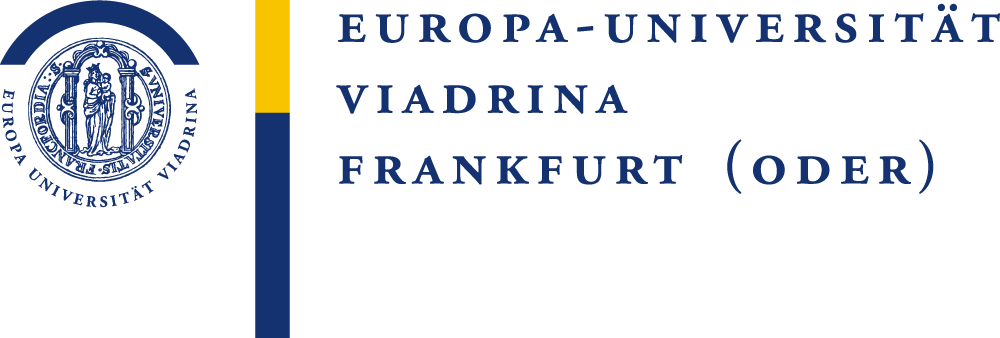Event series: Elections in the Digital Age
Has technology changed the way we vote? Why do populists succeed on social networks? What is the impact of hacking and leaks on elections? Should fake news be regulated? Can microtargetting political ads change how people vote? As the German federal elections are approaching, we want to see what lessons can be learned from recent elections in US and Europe.
If you are interested in the topic, you can join the discussion with other Berlin-based experts organized by the Centre for Internet and Human Rights. The CIHR is a vibrant hub for academic research about technology and society. Our goal is to inform current public and academic debates by producing high-quality research grounded in theory and empirical data.
On May 30, 2017 we will launch the debate with the first seminar on Social Networks and Populism with an expert from Jacques Delors Institut. On July 12, we host a lecture by dr Michał Kosinski, a psychologist and data scientist from Stanford University who developed a method to analyze people based on their Facebook activity.
To participate in our events, please send an email to ue.rhicnull@eciffo.
MAY 30: SEMINAR ON SOCIAL NETWORKS AND POPULISM IN THE EU
Guest: Paul-Jasper Dittrich, Research Fellow at Jacques Delors Institut – Berlin
Moderator: Joanna Bronowicka, Director at the CIHR, European University Viadrina
In the last years, populist movements and parties across the EU have managed to use social networks increasingly as a platform for political communication and mobilization. The transformation of the media landscape and political communication by social networks has allowed them to communicate directly with a steadily growing number of followers and distribute their political content to a mass audience.
In his recent paper, Paul-Jasper Dittrich examines the growth in fan numbers and interaction rates among populist parties and movements on Facebook between 2015 and March 2017 in France, Germany, Italy and Spain Despite the high probability that populist parties are using social bots and other manipulation techniques to artificially boost their popularity further, the question remains: Why are populists seemingly so successful in communicating their messages via social networks?
Time: May 30, 2017 from 18.00 – 20.00
Place: Stiftung Neue Verantwortung e.V.
Address: Beisheim Center, Berliner Freiheit 2, D-10785 Berlin
JUNE 27: SEMINAR ON MEASURING FAKE NEWS
Guest: Alexander Sängerlaub, leader of the project Measuring Fake News at Stiftung Neue Verantwortung (SNV)
Social media and digital technologies created a new media ecosystem that has become a challenge for democracy and its institutions – especially during elections. The fake news debate is symptomatic of this change. In Germany, the discussion reveals that there are many fears but hardly any reliable data. It is also unclear how effective already introduced counter measures really are. In the project “Measuring Fake News” led by Alex Sängerlaub, researchers get to the bottom of things. One goal is to understand and explain the scope and effects of fake news in Germany by collecting and analyzing data – together with an international network of experts. Another goal is to ascertain data about the success of debunking. More about the project in German here.
Time: June 27, 2017 from 18.00 – 20.00
Place: Stiftung Neue Verantwortung e.V.
Address: Beisheim Center, Berliner Freiheit 2, D-10785 Berlin
Register by filling out the form here or send an email to ue.rhicnull@eciffo
JULY 12, 2017: LECTURE BY DR MICHAŁ KOSINSKI, STANFORD UNIVERSITY
A growing proportion of human activities such as social interactions, entertainment, shopping, and gathering information are now mediated by digital devices and services. Such digitally mediated activities produce an unprecedented amount of digital footprints that can be used to reveal our intimate traits, emotions, and predict future behavior. Given the progress in Artificial Intelligence and computing, we should get ready for the future where privacy is a privilege reserved for the few.
As described in a widely read article by Das Magazin, Dr. Kosiński’s research on predicting psychological traits from social network data was purportedly used by Cambridge Analytica to target voters on social media in campaigns in favor of Brexit and Donald Trump. What lessons can we learn from these campaigns about the future of political advertising? Do we need additional measures to protect our privacy online and right to vote? The lecture by Dr. Kosiński will be followed by a discussion with experts on data and politics.
Time: July 12, 2017 from 18.00 – 20.00
Place: Universität der Künste
Address: Einsteinufer 43-53, 10587 Berlin
Register by filling out the form here or send an email to ue.rhicnull@eciffo

